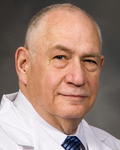
David H Van Thiel
Advanced Liver and Gastrointestinal Disease Centre, USA
Title: Endocan a valuable biomarker for hepatocellular carcinoma (HCC)
Biography
Biography: David H Van Thiel
Abstract
Hepatocellular carcinoma (HCC) occurs at the rate of more than 500,000 cases and is the 6th most common cause of cancer worldwide. It is also the 3rd leading cause of cancer related death. Currently, increasing number of cases of hepatocellular carcinoma are being referred for liver transplantation as a result of changes in the MELD score points awarded to such individuals. A host of laboratory and imaging studies are utilized currently to detect in the resected hepatic tissue, tumor size within the resected specimen, and the presence of satellite nodules as well as the presence of additional foci of tumor and an alpha-fetoprotein level greater than 750 post intervention have been utilized to address this latter issue. The major problem with these analysis is that they can only be addressed after the intervention has ocurred. What is needed is a biomarker that can be utilized prior to either a non surgical or surgical intervention that identifies cases with a high likelihood of cure or alternatively a high likelihood of having a long-term survival that justifies the intervention. Endocan is a soluble proteoglycans of 50 kD that is over expressed by endothelial cells in several different carcinomas and is associated with a change in endothelial status from that of a dormant cell to one associated with fast-growing tumor and enhanced tumor progression. As such, endocan may be the useful marker for guiding clinicians at selecting the best therapy (radiofrequecy ablation, radioactive beads, chemoembolization, resection or transplantation) for individuals with HCC. Moreover, it would appear to be an important target for future immunotherapeutic approaches for the treatment of hepatocellular carcinoma by inhibiting endocan activity, thereby inhibiting tumor growth and progression (metastases).
